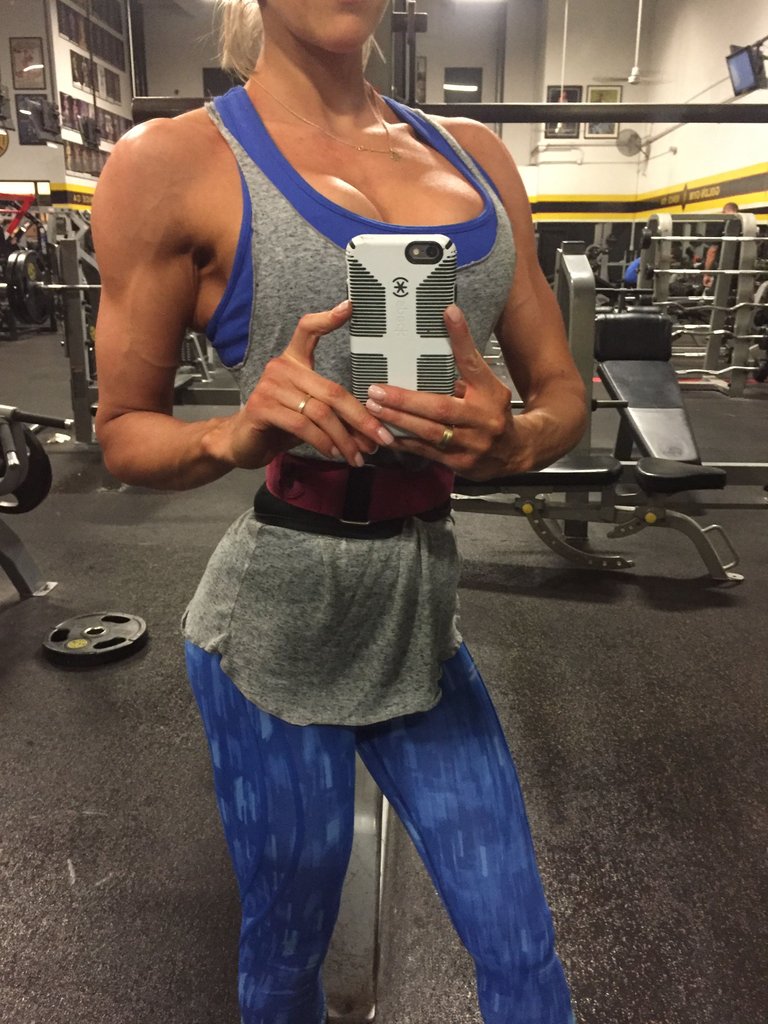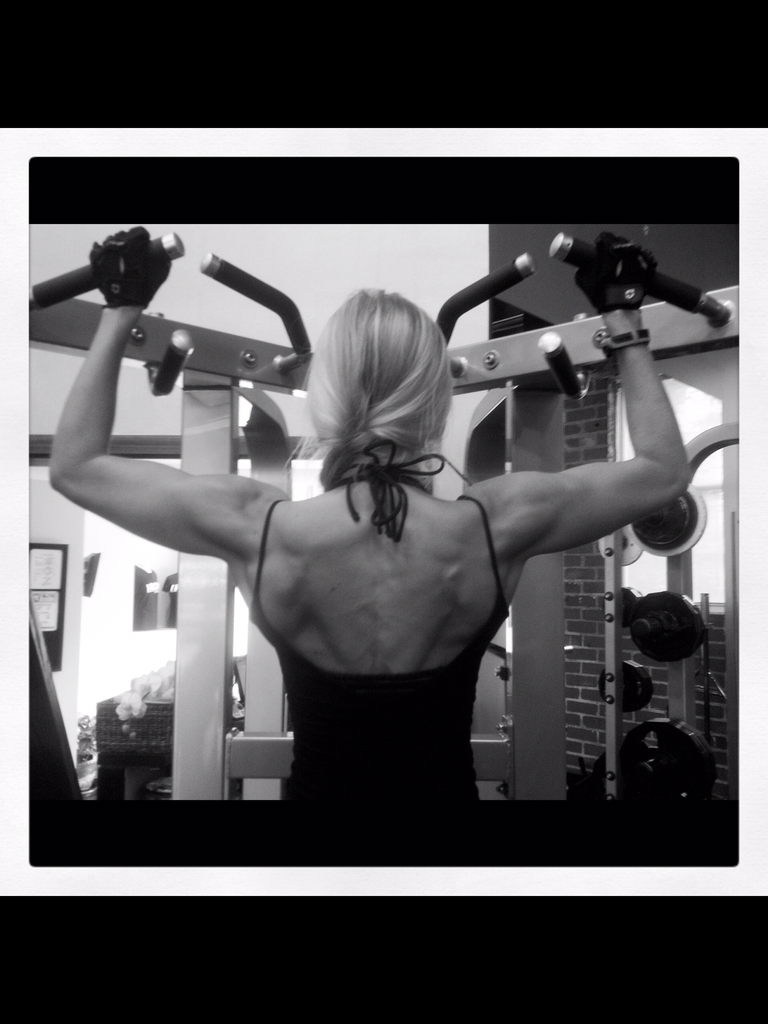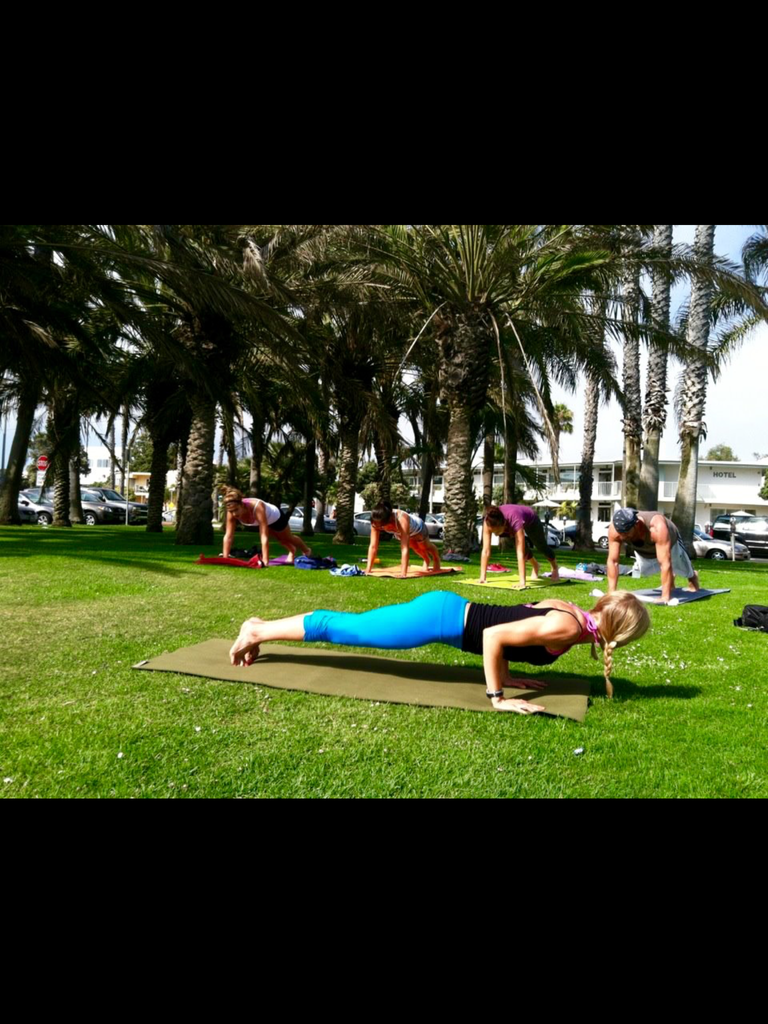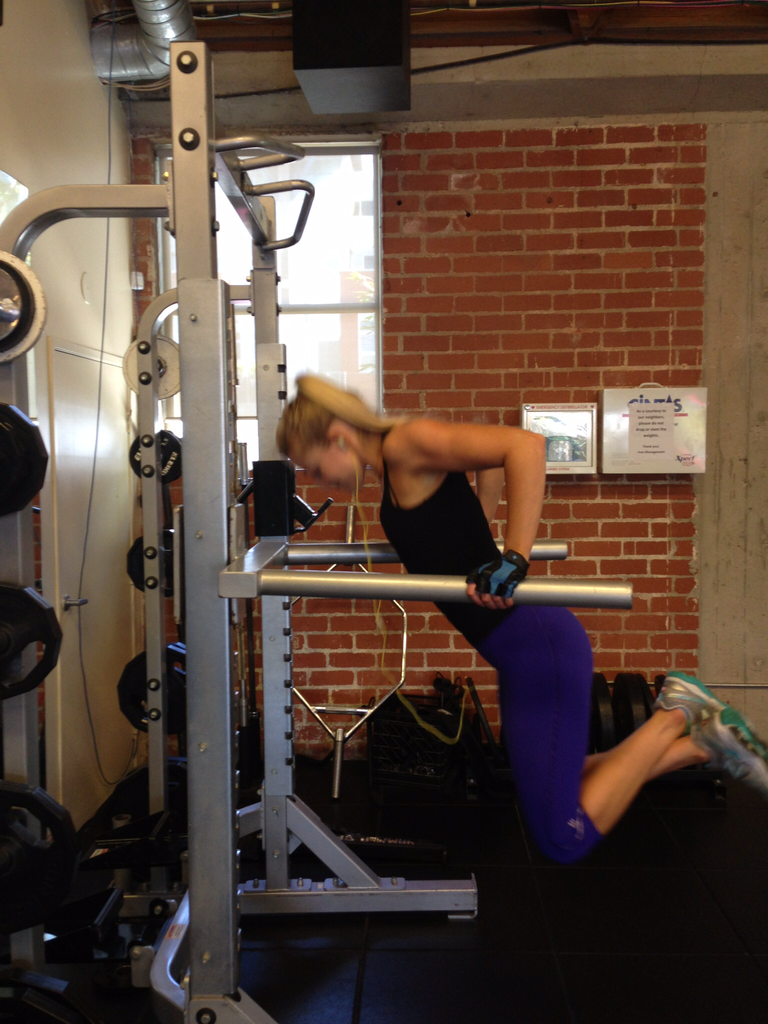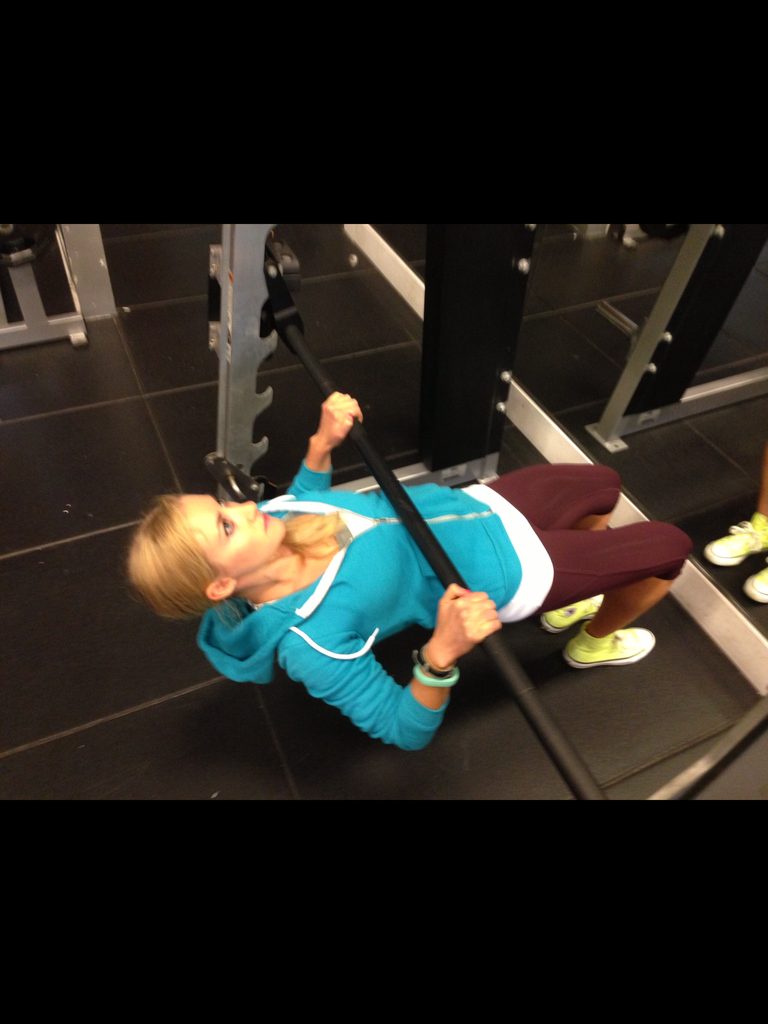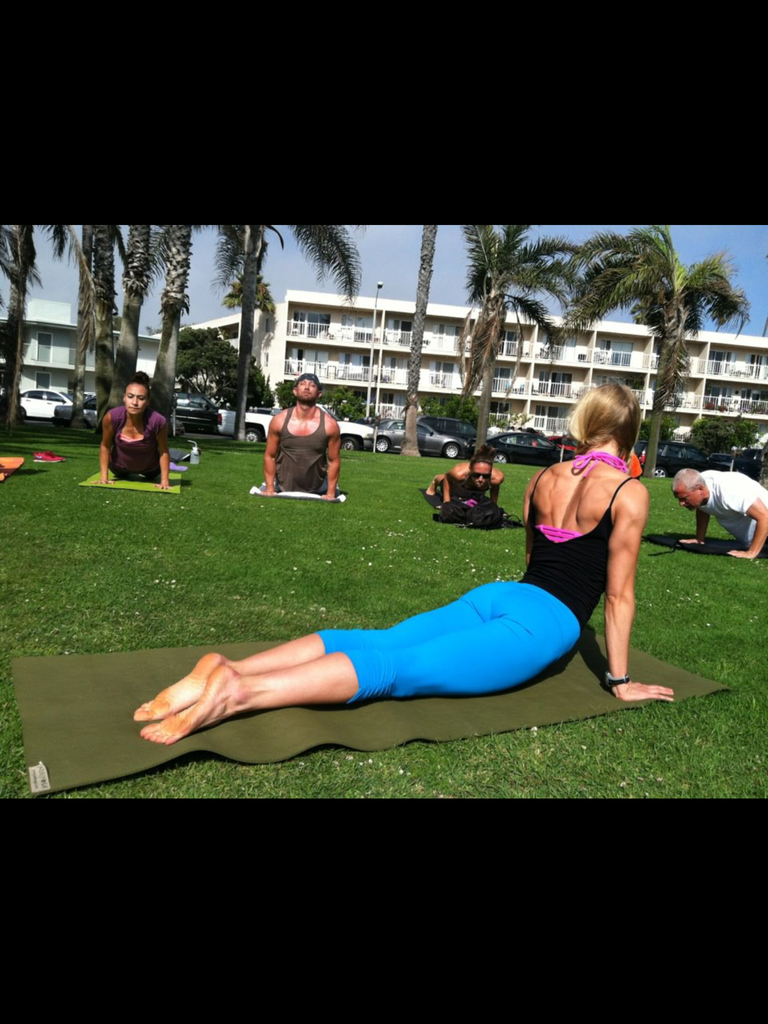The best and most effective exercises to lose fat and build a lean upper body:
One of the chief complaints that I hear from my female clients is that they loathe the excess "love" that congregates around the upper arm. Upper arm fat is a combination of toxic hormonal spillover and excess adipose tissue, or regular bodyfat. The back of the arm, or the triceps, is home to an abundance of estrogen receptors and this leads to unwanted bodyfat storage in this area. Luckily, there is hope and there are many ways to sculpt this common problem area. Contrary to popular belief, the jury is still out on whether spot reduction is actually possible. And, while doing a million tricep press downs won't sculpt your arms alone, a combination of trusted exercises and general dietary and lifestyle improvements will give you the sleek arms you desire. There has been some evidence to show that improving blood flow in the upper body will undoubtedly lead to muscular improvements and decreased bodyfat in the arms.
The specifics
It is important to understand the muscles of the upper body if one is committed to transforming them. The triceps comprise two thirds of the upper arm while the biceps makes up the remaining third. The deltoids wrap three heads like a braid from the collar bone to the insertion of the triceps and biceps, creating that striated cap when one is lean. The latissimus Dorsi and the rhomboids compose the muscles of the upper back, which, when developed, add to the appearance of a shapely and sculpted upper body, as well as help to function for better posture and protection of the spine. The pectoralis (chest) supports the sternum and functions primarily in all horizontal push movements, as well as supporting posture and adding to abdominal support. Working the shoulders, chest and back should be a solid part of any upper body regimen intended to produce shapely arms. The biceps and the triceps are the smallest muscles of the upper body and it is the other primary movers of the skeleton that will burn more calories when worked, and produce faster results. That being said, not everyone has time to work the upper body 4 to 5 times each week, with one weight lifting session dedicated to each upper body muscle group. Worry not. The upper body can be worked in many effective ways, with multiple possible muscle group combinations. The important thing is that one works hard, intentionally with intensity. Anything worth doing is worth doing well. Exercising especially falls into this axiom.
The exercises
One of the best instruments for upper body work is a type of cardio that specifically targets the upper body. This might include the ergometer (rower), jumping rope, the rope pull machine, swimming, yoga or dance. Additionally, different types of "cardio" using resistance might be utilized like HIIT training with heavy ropes, metabolic training with kettlebells or barbell complexes, or plyometric compound movements like burpees, renegade rows, lateral plank walks, TRX, the list goes on... If your heart rate is elevated and your whole body is active, you're on your way to taming those wings. Again, spot reduction has not yet been qualified as an effective way to burn fat on any single body part. Therefore, the more compound (full body) movements one includes within her training, the faster she will see desirable results toward her goal.
Bodyweight movements
It is a popular misconception that lifting weights might make women bulky, when in most realities, this could not be further from the truth. Lifting weights burns more calories than cardio alone, builds lean muscle and increases metabolism so that more fat is burned. If one undertakes a massive surplus of calories, only lifts heavy weights and performs no cardio activities, it is more plausible that she might gain unnecessary bulk. This is a product of her nutrition choices, not her weight training. This being acknowledged, it is still possible to gain lean muscle and trim body fat while performing bodyweight exercises to engage the whole body. Be not mistaken, though, these are not as easy as popping 30 air squats in the hallway while cooking dinner.
Pull-ups
Push-ups
Dips
Inverted rows
Downward facing dog and Upward facing dog
... some of the best exercises to engage not only the arm muscles, but the full body, leading to higher calorie expenditure, increased strength and mobility and deep abdominal core work.
Push-ups and dips required little to no equipment and can be done from home. Keep your entire body in plank position as you lower into a push-up, abs tight, and use the wall or a firm bench to start if push-ups from the floor are too difficult. Start with 4 sets of 10 and increase your way to 4x20. This movement works the chest, upper chest, triceps, front of the shoulders and the abdominals.
Dips can also be done from the floor, with knees bent, or one can use a sturdy chair. Keep the elbows in line with the body, and lower only as far as your upper arm remains parallel to the ground. Drive through the heel of the hand, keep the chest lifted and squeeze the back of the upper arm firmly at the top of the exercise. Start with 3 sets of 10 and work your way up to 3 sets of 15. This movement works the triceps, shoulders and chest muscles.
Inverted rows will require a stable bar or apparatus from which to hang near the ground. The idea is simple, yet the execution is surprisingly demanding. With palms up or down (differing grip targets different muscles in the back, shoulders and arms), grip the bar firmly, engage the glutes and abdominals into a reverse plank position (or with knees bent as a modification) and pull your chest to meet the bar. Keep your neck in line with the rest of the body, relaxed, stable as a plank. Lower away from the bar as soon as you've pulled yourself all the way in and repeat as many times as possible. Don't be surprised if you complete fewer than 8 repetitions on your first go. This is a very difficult movement, but your strength will improve in time. Start with 3 sets of 8. You may change the angle of horizontal pull, and hence difficulty, by adjusting the bar further from or closer to the ground. A higher starting point will lead to slightly easier rows. This movement works the entire back, shoulders, biceps and abdominals.
Pull-ups are perhaps the king of upper body movements. They are exceptionally difficult and require the use of all muscular strength within the body. To begin, ask your gym whether they have super-bands for personal use. An assisted pull-up machine will also do, but using a super-band will lead to faster progress so that one is capable of performing pull-ups with her own body weight sooner. Hook the large, thick, durable elastic band over the nearest pull-up station as a slip knot, and press one foot firmly into the loop you've created. Using your bodyweight for assitance, continue to press into the super-band, stabilize yourself with core work and pull your chin over the bar as many times as possible. If it is 5 times, congratulations! If it is 10, you may need a super-band providing less resistance. Complete 4 rounds of as many repetitions as possible. This is absolutely a very challenging exercise and it takes courage to try pull-ups for the first time. Do not be afraid to fail! This is the fastest way to building upper body strength that is both functional and aesthetic. If you can tackle pull-ups on your own, there is nothing you can not do. Pull-ups work every muscle in the back, the arms, the shoulders and the core.
Downward facing dog is one final bodyweight movement that is highly effective in establishing base strength and endurance in the upper body muscles. The position is more of a static hold like a plank, than an exercise done for repetitions. Planks are also extremely effective for upper body strength and core work. To find your downward facing dog, come into full plank position with arms straight, hands shoulder distance apart, tailbone in, abs tight, thigh bones pressed toward the ceiling. The arms and legs are straightened and engaged. Come high up onto the toes, and bend the knees. Press into the index finger mounds, relax the shoulders away from the ears and lift the sitbones up and back toward the crease of the wall and the ceiling behind you. Imagine sitting your rear on that space where the wall meets the ceiling, lifting the pelvis up over the thigh bones, and then press your thigh bones firmly back. Allow the heels to be as far off the ground as necessary for the spine to elongate fully, allowing the crown of the head to approach the space between the index finger and thumb. Continue to press firmly into the hands, relax the back toward the floor, and engage the muscles of the legs to pull the weight off of your hands as much as possible. In increments of 30 seconds - 1 minute, hold this position. Allow the legs and shoulders to enjoy some static strengthening while the back lengthens and the breath becomes steady and unlabored. Downward facing dog strengthens the arms and the legs and stretches the back, while also providing many non-muscular benefits like activation of the parasympathetic nervous system and other cues that help the body to relax.
Add as many of these exercises into your routine as often as every other day to see your results increase at a much faster rate. When structuring an upper body workout, it is helpful to keep in mind four basic anatomical movement patterns: horizontal push (push-ups), horizontal pull (inverted rows), vertical push (downward dog) and vertical pull (pull-ups). An easy regimen might focus one training day to be comprised of both movements in the vertical plane: downward dog or overhead presses superset with pull-ups. The second upper body day might be focused on the horizontal plane: push-ups and dips superset with inverted rows. As long as one is mindful, working hard, and having fun, there is no "wrong" way to exercise. Use your imagination. You will never regret a workout!
If you want to know more about a specific exercise or nutritional concept, make a request! Trying to be more active on here to share knowledge. I believe being FIT and happy should be free!
With love and gratitude,
Kate
